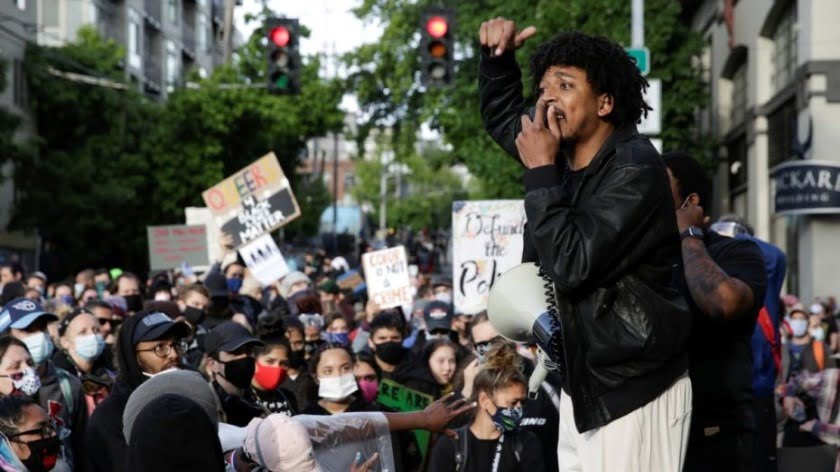Bahrain-Israel Deal Could Bring Arabs and Israelis in Anti-Iran Coalition
An event of great importance for the geopolitics of the Middle East took place this week: Bahrain and Israel signed an agreement on military cooperation in defense and security. In the midst of the growing tensions that hurt the Middle East, the strategic significance of this type of measure is immense, revealing that this small Arab kingdom is not only willing to remain in peace with Israel as other Arab countries had already done, but also to strategically cooperate with the Zionist government against its eventual enemies in possible conflicts.
During a visit by Israeli Defense Minister Benny Gantz to Bahrain this week, a military cooperation agreement was signed between the two countries, strengthening bilateral relations that had previously been normalized in 2020, when, mediated by the US, Bahrain and the United Arab Emirates signed peace accords with Israel. With the measure, Bahrain became the first Arab country to maintain security and defense cooperation ties with Tel Aviv, conducting to a new era of international relations in the Middle East.
In Gantz’s own words:
“It will allow for the deepening of cooperation and will strengthen the security of the two countries (…) The MOU [memorandum of understanding] framework will support any future cooperation in the areas of intelligence, mil-to-mil [military to military], industrial collaboration and more (…) Only one year following the signing of the [Abraham] Accords, we have achieved an important defense agreement which will contribute to the security of both countries and the stability of the region (…) Against a backdrop of increasing maritime and aerial threats, our ironclad cooperation is more important than ever”.
As reported by local media, Gantz’s visit was accompanied by great honors, with the Israeli prime minister having the opportunity to talk face-to-face with King Hamad bin Isa al-Khalifa at the royal palace – an opportunity given to only a few foreign officials. In addition, Gantz also visited the US Navy Fifth Fleet’s headquarters in Bahrain, which reveals a possible American mediation in the approach.
In fact, many factors may be influencing this process of military cooperation. The current moment is extremely tense in the Middle East, considering the failure to form a new nuclear agreement between the US and Iran. Tel Aviv and Washington accuse Tehran of not cooperating with global nuclear security and, as a result, justify their investments in new military measures allegedly intended to “prevent the Iranian danger”. Considering that Iran which has strong ties with Turkey is a common enemy for Americans, Israelis and most Arab nations, the conditions are appropriate for the formation of this new coalition.
There is also the Yemeni factor, in which Iran and the Arab coalition fight each other in a proxy war. Contrary to what was expected a few months ago, the war has not come to an end: the rapprochement between Iran and Saudi Arabia remains slow and Biden has not been able to carry out his plans to boycott Riyadh. As the conflict intensifies, tensions between Arabs and Iranians escalate significantly and this situation forces the Arab nations to look for ways to strengthen themselves – forming as many military alliances as possible.
Now, the first steps of the new alliance are already being traced. Israel will participate next week in a US-led naval exercise with the participation of more than sixty countries, including Bahrain. UAE and Saudi Arabia will also join the drills. It is expected that this type of event will become more and more frequent in the coming months, bringing together an increasing number of Arab nations in the name of a common project of defense against the “Iranian threat” – invented by the fallacious US narrative about Tehran’s nuclear program.
It is difficult to know whether the other Arab countries will also join Israel in a military alliance. It was expected that Bahrain would be the first country to take this kind of attitude, as it is an Arab kingdom with an advanced process of westernization and distancing from the Arab world. But nations like Saudi Arabia, for example, are less likely to take this measure, because, despite rivalries with Iran, they are still very committed to the Palestinian cause and are not willing to give it up. From a realistic perspective, it is most likely that the military approach to Israel will develop as a natural consequence of the “Abraham Accords”, as the peace treaties signed by Bahrain, UAE, Morocco and Sudan with Israel became known.
There are two possible paths for Arab countries that maintain peace with Israel: to use diplomatic cordiality to gain advantages in negotiations and try to favor the Arab world through dialogue, or approach Israel militarily and abandon the historic interests of Arab nations. Egypt, the first Arab country to maintain peace with Israel, appears to be following the first path, considering its positive influence in preventing Israeli incursions into Palestine. On the other hand, the second wave of Arab nations to maintain peace with Tel Aviv, those that signed the “Abraham Accords” in 2020, seems to be taking the second path.







